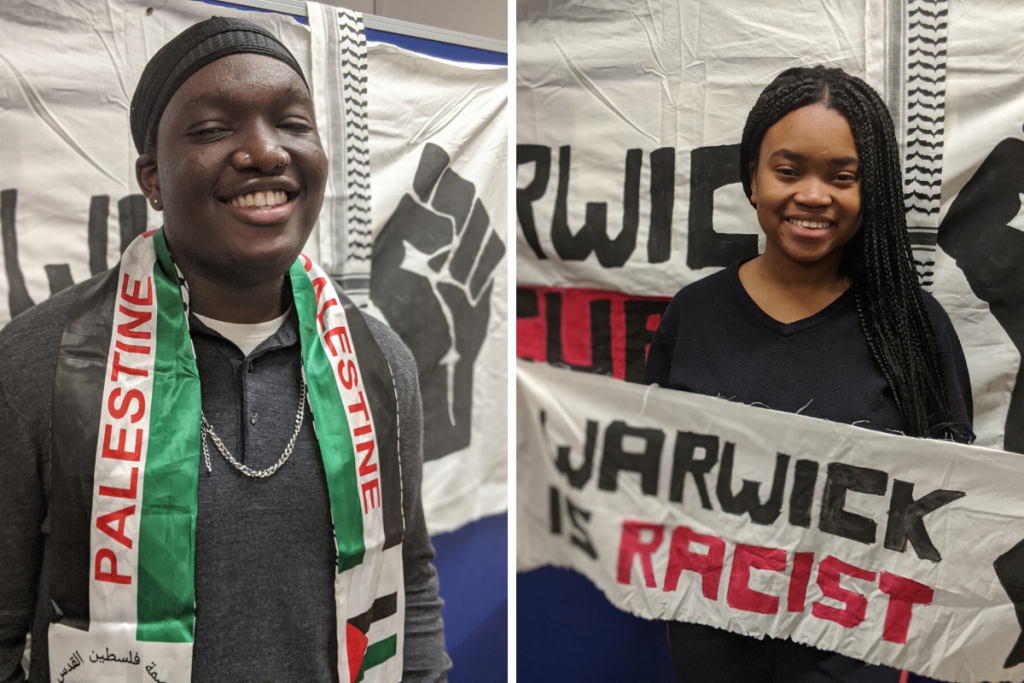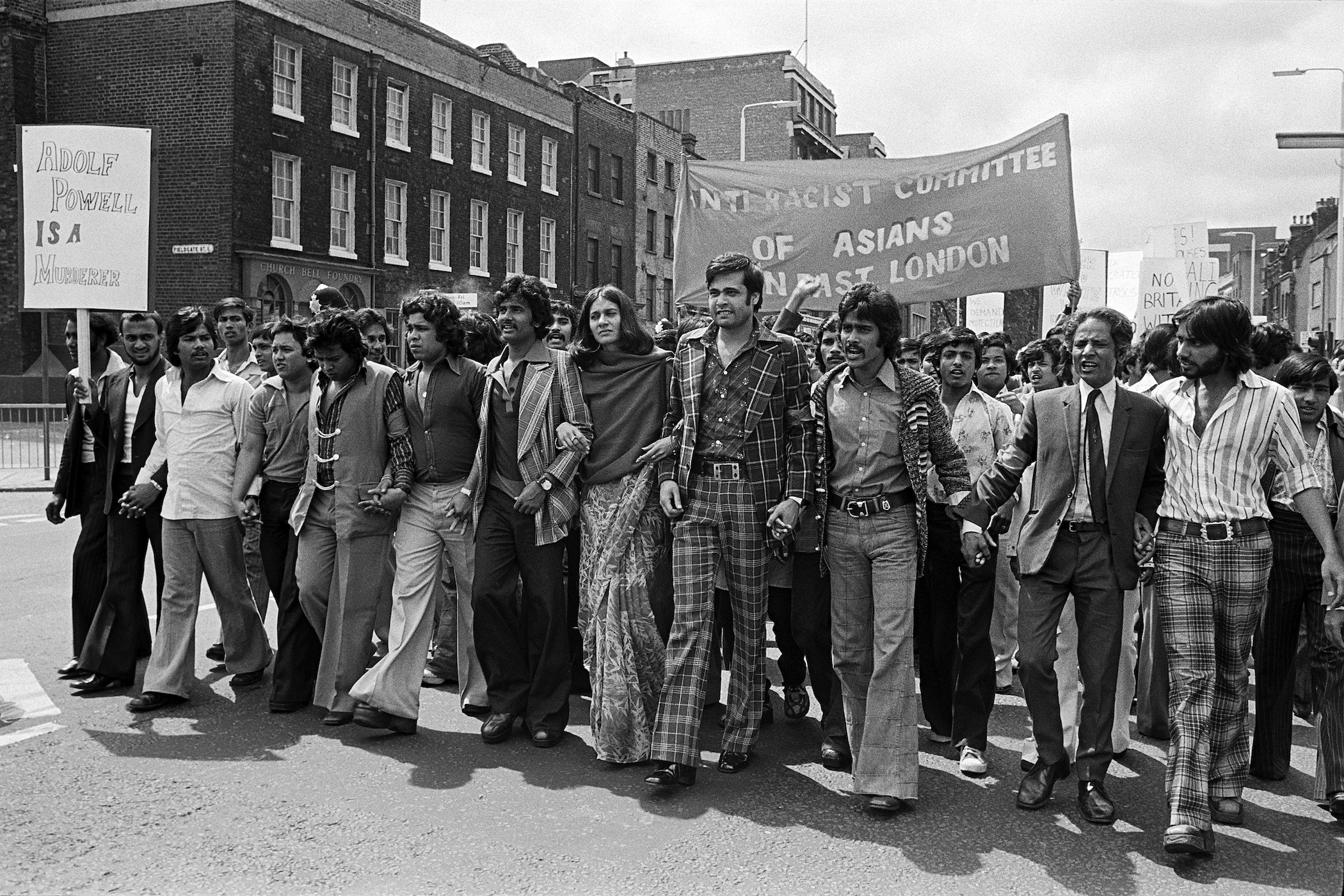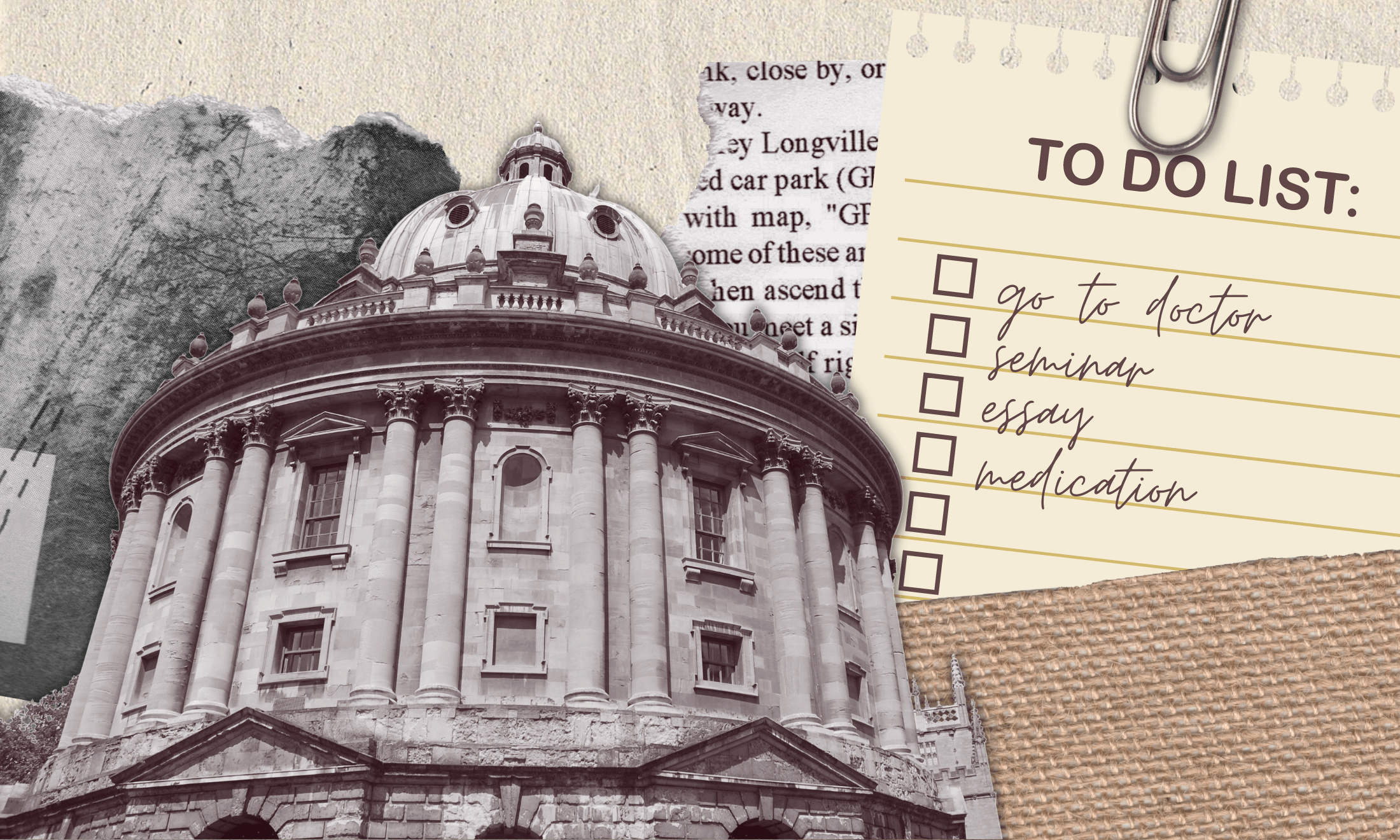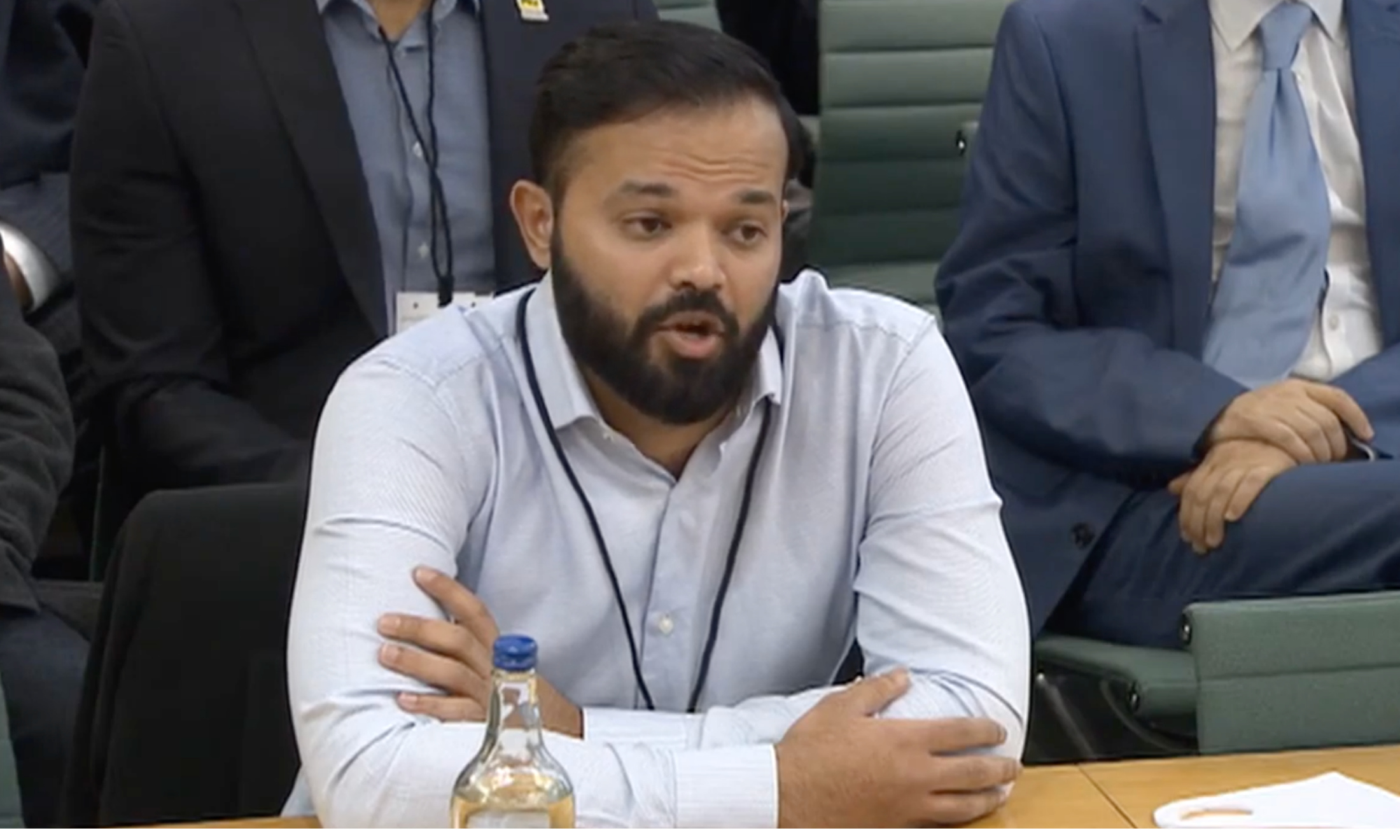
‘I have faced death threats’: how the anti-racist occupation at Warwick challenged injustice
Rosel Jackson Stern
23 Dec 2019
All photography by Rosel Jackson Stern
When Taj Ali, a student and the ethnic minorities officer at the University of Warwick, joined an occupation against racism on campus, he didn’t think things would escalate to the degree they did. “I was escorted to my lectures and seminars by campus security. I faced death threats online on Twitter,” explains Taj. When I ask him if he is afraid for his safety, there’s a strained silence. After a moment, he says: “I was at the time, but at this point I feel like I have nothing to lose because I’ve lost everything.” Although the occupation (which took on the name Warwick Occupy) has been successful in achieving its demands and is now over, the direct action that has taken place at the university over the course of December has come at great cost to those involved.
The initial protests that sparked the occupation began when retired Israeli Defense Force Colonel Eyal Dror was invited by the Warwick Jewish Israeli Society and Stand With Us UK to speak on campus. The event took place on 19 November, less than a week after at least 32 Palestinians were killed in Israeli air raids in Gaza led by the Israel defence force. Both the university and the students’ union (SU) ignored a statement with more than 250 signatures calling for the cancellation of the event. During the colonel’s talk, protestors linked arms and the protest eventually culminated in the occupation of two rooms in the SU headquarters. The vast majority of the students who staged and executed the occupation were people of colour.
The SU hired venue managers that wouldn’t allow protestors to re-enter the room if they left to go to the bathroom or access their medication. “Our own welfare and mental well-being was used as leverage against us by two SU employees,” explains Tas. The students held their ground and eventually the SU staff accepted that they were there to stay. On day six of the direct action, the occupation released their demands, including a review of the university’s external speaker process and an investigation into racism on campus.
In a statement published in response to the protest and the events that followed, the university explained that it had fulfilled its legal duties to ensure free speech and facilitate debates “characterised by passionately held, and often diametrically opposed, viewpoints” on campus. With the occupiers’ well-being framed as a political point of view by the university, around 20 members of the occupation took three-day shifts in the SU rooms until their demands were eventually met on 18 November.
With a student body of 27,000 and a rich history of protest, Warwick Occupy is not the first occupation to take place on the University of Warwick campus. In June of 2013, students from Protect the Public University staged an occupation in the institutions’ most important meeting rooms, in protest of the privatisation of higher education and wage disparities across the university. This is also not the first time students of colour have suffered at the university. In 2016, student Faramade Ifaturoti reported racial slurs written on her bananas stored in her shared kitchen. And this year, students temporarily banned from the university for having used racial slurs and grotesque misogynistic language in a group chat were allowed to return to their studies early. Statistics from 2017 revealed that 20% of the undergraduate student body at Warwick are “black and minority ethnic” (BME). In an institution where reports of racism have largely been left unaddressed, the occupation forced the students union, and hopefully the university, to begin to change for its students of colour.
***
I arrive at Warwick SU the day after the general election to an atmosphere of quiet tension. The students have now been in occupation for 25 days and it’s crunch time. Nazifa Zaman, a second year history and politics student and occupier, greets me at the bus stop. She’s tired but warm and welcoming. As we walk in the doors of the SU headquarters, she is immediately informed that the SU sabbatical officers, elected students who are paid to represent student interests, want to have a meeting as soon as possible. Nazifa explains that lots of the protestors are asleep, having stayed up for the election results the night before. She’s asked to wake them up and inform them that they have 15 minutes to give notes on the first public statement the SU wants to release in response to the occupation.

As Nazifa hurries to wake up her fellow protestors, I introduce myself to the officers. Education officer Chloe Batten and Welfare and Campaigns officer Tiana Holgate both have friends in the occupation and are the only black officers who work for the union, but decline an interview on the record. None of their colleagues seem keen to talk to me either. I’m soon escorted out of their offices by another staff member and asked not to “take offence”. The polite hostility becomes a theme throughout the day as I’m barred from the day’s deliberations between CEO Rob Parkinson and the team of seven sabbatical officers and Occupy Warwick. Rob is the only senior member of staff present, as all the others are in the building next door at the staff Christmas dinner.
“It’s been difficult to get them [the student officers] to listen,” explains Akosua Sefah, student, occupier and executive of Warwick Anti-Racism society. “Some of them are on our side and some of them aren’t. They all have different politics. They have different mandates and they’ve been elected on different policies so they don’t all agree.”
After the impromptu exit from the sabbatical officers work space, Nazifa takes me into the occupied rooms. The students greet me with enthusiasm, sitting amongst discarded mattresses and tables shoved together in the middle of the room. Newly awoken, their review of the SU’s statement begins with rigour. They take their time, methodically working through every paragraph, unintimidated by the officers’ frequent interruptions to tell them to hurry up. “This is an occupation, not a vacation. They can wait,” says Adelola Anjorin, a sociology student and former president of Warwick’s Anti-Racism Society.
Although I wasn’t allowed to attend, according to the occupiers the first meeting of the day is dramatic. The occupiers outline how the SU’s public statement fails to address any of their demands, how it doesn’t mention black students as targets of racism and how it generally frames the occupation’s aims as a matter of opinion rather than a response to the reality of institutional racism. As I wait outside, officer Tiana comes out in tears, alongside officer Chloe. Around 30 minutes later, the activists also leave the meeting in a storm of frustration.“Who wrote this statement?” asks occupier Precious Okoye, “Who wrote it, edited it and thought it was ok?”. During the meeting they had been given an additional document, outlining the SU’s responses to the demands of the occupation in more depth. Upon reading it through, it doesn’t take long before the students realise that it has no dates, no names and no way to hold the SU to account.
***
On May 7 of this year, a letter sent by members of the union’s staff to senior trustees reported that “racism was at the heart” of the organisation. The SU responded that they would be “appointing an independent Equality, Diversity and Inclusion (EDI) consultant to review all areas of EDI”. After the final meeting of the day, Ademola Anjorin, a third year sociology student and occupier points out that the SU is four months behind on any such review and that it’s not the same as addressing institutional racism: “We are a decolonial collective. We don’t do British culture where you don’t say what you mean. We say exactly what we mean which is name it: Warwick SU is institutionally racist, we are evaluating institutional racism.”

Much like the SU’s attempt to deal with internal racism, the response to the occupation’s demands is lacking. The activists come out of every session having been obliged to explain their experiences to mostly white people. “It feels like sometimes you go to a meeting, and you [are] just talking to a brick wall,” says Taj.
The second meeting of the day is spent explaining to the officers and the CEO why it’s important to acknowledge institutional racism for what it is. One of the officers reportedly bursts into tears when pressed on this point, throwing literal white tears into an already heated debate. It’s only when Ademola reads out a harrowing account of racist abuse in the SU restaurant, that Rob begins to empathise. “You shouldn’t have to put your traumatic experiences out there just to get white people to care about you,” argues Ademola, speaking to me afterwards.
By the end of the day, the students union have promised to revise their response and turn it into a publicly accessible project plan. Despite being tired, and honest about what it has cost to occupy a hostile institution, Occupy Warwick remains cautiously optimistic that this is the start of real change.
***
On the 18 December after 30 days of continued protest (and five days after my visit), the SU met most of the occupiers’ demands and outlined a timeline for implementation. “‘It’s a short-term victory in the long-term struggle to ensure that ethnic minority students are taken seriously by the university,” explains Taj. The SU has promised to investigate both the external speaker process and the venue managers they hired who allegedly prevented students from accessing medication, and has committed to allowing Warwick Occupy’s input on the EDI review.
What began as a protest against Islamophobia and the genocide of Palestinian people has rallied support across racial identities against institutional oppression and erasure. The occupiers managed to transform a hostile space into one where warmth and solidarity flourished.
The hopelessness I had felt after the election result seemed stunningly out of place in the face of their resolve. On the morning of Friday 13, racism and its legacies seemed inevitable, pervasive and ruthless in all its forms. But I went to bed reminded that black and brown people have always mobilised to resist injustice and that our politics are nothing without praxis – taking action, as supposed to simply having an opinion. Resistance doesn’t just happen inside the ballot box but in the communities dedicated to protecting our rights and identities.
gal-dem has reached out to Warwick SU and the University of Warwick for comment.









